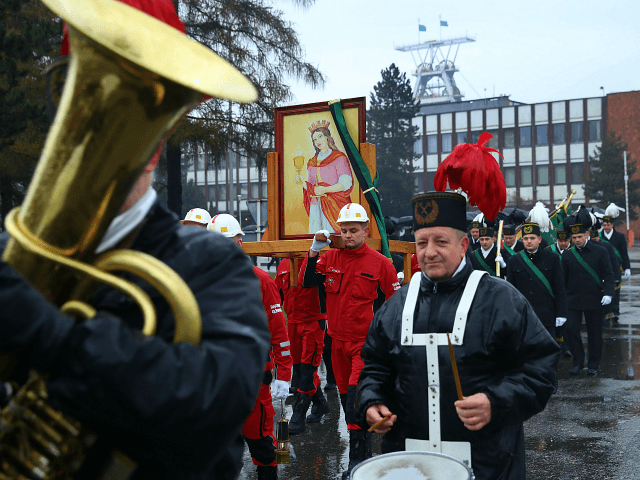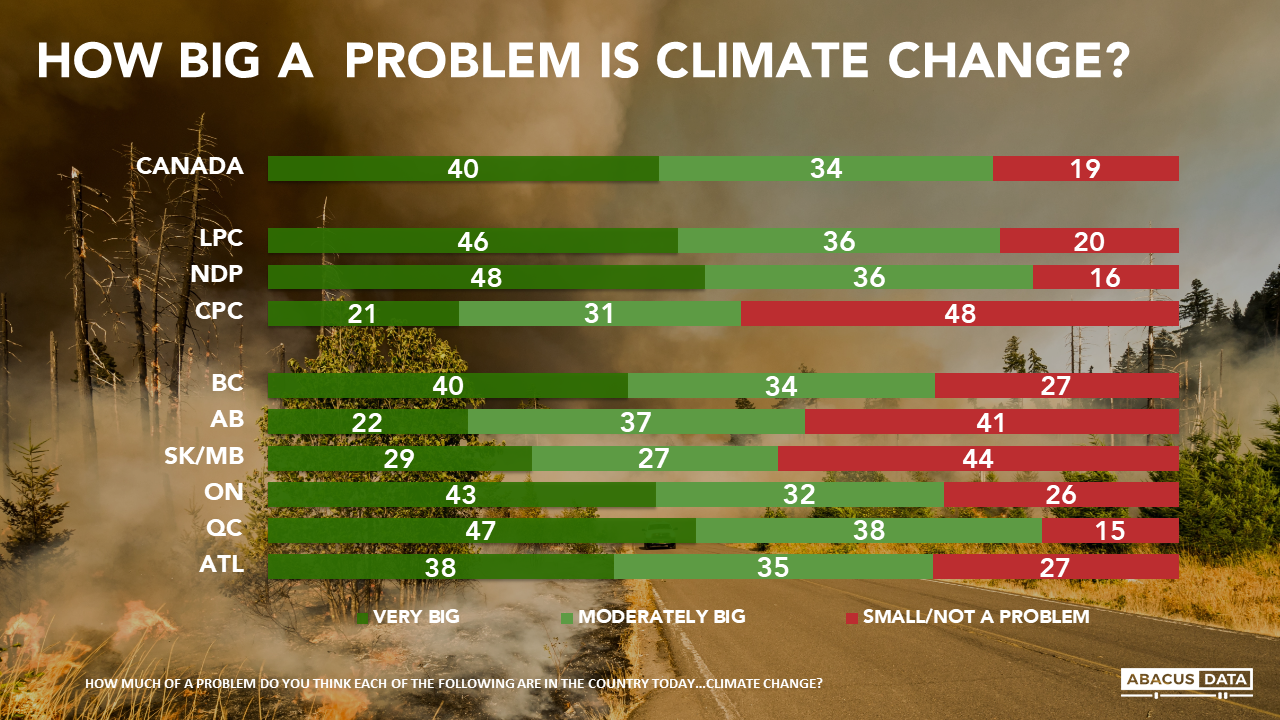You are using an out of date browser. It may not display this or other websites correctly.
You should upgrade or use an alternative browser.
You should upgrade or use an alternative browser.
Startling new research finds large buildup of heat in the oceans, suggesting a faster rate of global
- Thread starter agentaqua
- Start date
GLG
Well-Known Member
You are correct. We were in a cooling trend that would perhaps lead to another peak ice age in 15K years. That is based on orbital mechanics and the Milankovitch cycles. However that has been canceled due to the long lasting effects of CO2 in the atmosphere.I thought I read somewhere or may have herd it on star talk that we are actually suppose to be in a cooling trend.
fish brain
Crew Member
Ice age averted! We should all pat ourselves on the back?You are correct. We were in a cooling trend that would perhaps lead to another peak ice age in 15K years. That is based on orbital mechanics and the Milankovitch cycles. However that has been canceled due to the long lasting effects of CO2 in the atmosphere.
Yeh right pat ourselves on the back when October and November rains come in December and all the Pacific salmon runs dissapear as there is no water in the rivers and they die pre-spawn. It is not just temperature it is climate change that is happening faster than species have the ability to adapt to. Coastal cedars dieing off as it is just to dry now for them. The recent fires that will only get worse...maybe in a few years we won’t have summers anymore, just smoke for weeks on end.
COMMERCIAL FISHERMEN’S ASSOCIATION TAKES ON FOSSIL FUEL COMPANIES
Pacific Coast Federation of Fishermen's Associations Files Lawsuit Over Repeated Closures of West Coast Dungeness Crab Fishery
Downloads/Links:
• Full copy of the complaint: https://www.sheredling.com/complaint-pcffa/
• Backgrounder on the fossil fuel industry’s role in warming oceans and crab fishery closures: https://www.sheredling.com/wp-content/uploads/2018/11/Backgrounder-Crabbers-FINAL-111418.pdf
• Interactive timeline showing what the fossil fuel industry knew about the damage their products would cause, when they knew it, and what they did (and didn’t) do about it: https://www.sheredling.com/climate-change-pr/
Pacific Coast Federation of Fishermen's Associations Files Lawsuit Over Repeated Closures of West Coast Dungeness Crab Fishery
Downloads/Links:
• Full copy of the complaint: https://www.sheredling.com/complaint-pcffa/
• Backgrounder on the fossil fuel industry’s role in warming oceans and crab fishery closures: https://www.sheredling.com/wp-content/uploads/2018/11/Backgrounder-Crabbers-FINAL-111418.pdf
• Interactive timeline showing what the fossil fuel industry knew about the damage their products would cause, when they knew it, and what they did (and didn’t) do about it: https://www.sheredling.com/climate-change-pr/
Alaska Pollock Spawning Season May be Earlier Under Climate Change
https://www.fisheries.noaa.gov/feat...ng-season-may-be-earlier-under-climate-change
https://onlinelibrary.wiley.com/doi/pdf/10.1111/gcb.14483
https://www.fisheries.noaa.gov/feat...ng-season-may-be-earlier-under-climate-change
https://onlinelibrary.wiley.com/doi/pdf/10.1111/gcb.14483
OldBlackDog
Well-Known Member
REPORT: No Warming Trend At Three-Quarters Of Canada’s Long-Term Weather Stations
8:37 AM 11/27/2018 | Energy
Ross McKitrick, an economist at the University of Guelph and seasoned climate researcher, assembled data from hundreds of weather stations across Canada, including those with data going back to 1888.
What McKitrick found is average daytime high temperature warmed about 1 degree Celsius per century, or 0.1 degrees per decade over the last 130 years. However, McKitrick also found that many weather stations showed no statistically significant warming or cooling trend over the last century.
“There are 133 stations with data extending back to 1918, of which 72 percent exhibited no statistically significant warming or cooling trend,” McKitrick told The Daily Caller News Foundation via email.
For those stations, McKitrick also found that “warming has been stronger in winter than summer or fall,” according to his report, and that “October has cooled slightly” while daytime highs increased about 0.1 degrees Celsius per decade.
Nearly three-quarters of “stations did not exhibit statistically significant warming or cooling,” he wrote. McKitrick also noted that “there has been virtually no change in the median July and August daytime highs across Canada, and October has cooled slightly” since 1939.
But what’s most interesting is the lack of Arctic amplification, increased warming at higher latitudes, in long-term records. (RELATED: A Top-Line Claim In The Newest US Climate Report Relies On Research Tied To Major Democratic Donors)
“Over long samples there is little polar amplification (increased warming with latitude) but it does appear in fall and winter months in more recent subsamples,” McKitrick wrote, noting later that higher latitudes show considerably more warming in post-1978 data.
McKitrick released his temperature report amid a media frenzy surrounding the latest National Climate Assessment, which the U.S. government released Friday.
The NCA’s dire warnings sparked alarming media coverage, including a CNN article claiming “it will be harder to breathe” and that “more of us will die” from future global warming.
However, alarming predictions such as those CNN highlighted stem from the NCA’s heavy reliance on an extreme global warming scenario, called RCP 8.5, that’s been increasingly called into question by experts.
Two University of British Columbia scientists published a study in 2017 arguing “RCP8.5 and other ‘business-as-usual scenarios’ consistent with high CO2 forcing from vast future coal combustion are exceptionally unlikely.”

U.S. President Donald Trump gestures during a Make America Great Again rally in Biloxi, Mississippi, U.S., November 26, 2018. REUTERS/Kevin Lamarque.
President Donald Trump disagreed with the report’s claim that global warming could significantly damage the economy.
“I don’t believe it,” Trump told reporters Monday. “Right now, we’re at the cleanest we’ve ever been, and that’s very important to me. But if we’re clean but every other place on Earth on is dirty, that’s not so good.”
Follow Michael on Facebook and Twitter
Content created by The Daily Caller News Foundation is available without charge to any eligible news publisher that can provide a large audience. For licensing opportunities of our original content, please contact licensing@dailycallernewsfoundation.org.
8:37 AM 11/27/2018 | Energy
- Most long-term Canadian weather stations show no statistically significant warming or cooling trend, a new report found.
- Overall, Canada has warmed at a rate of 0.1 degrees Celsius per decade over 130 years.
- Shorter-term temperature records show more warming, including more warming in the Arctic.
Ross McKitrick, an economist at the University of Guelph and seasoned climate researcher, assembled data from hundreds of weather stations across Canada, including those with data going back to 1888.
What McKitrick found is average daytime high temperature warmed about 1 degree Celsius per century, or 0.1 degrees per decade over the last 130 years. However, McKitrick also found that many weather stations showed no statistically significant warming or cooling trend over the last century.
“There are 133 stations with data extending back to 1918, of which 72 percent exhibited no statistically significant warming or cooling trend,” McKitrick told The Daily Caller News Foundation via email.
For those stations, McKitrick also found that “warming has been stronger in winter than summer or fall,” according to his report, and that “October has cooled slightly” while daytime highs increased about 0.1 degrees Celsius per decade.
Nearly three-quarters of “stations did not exhibit statistically significant warming or cooling,” he wrote. McKitrick also noted that “there has been virtually no change in the median July and August daytime highs across Canada, and October has cooled slightly” since 1939.
But what’s most interesting is the lack of Arctic amplification, increased warming at higher latitudes, in long-term records. (RELATED: A Top-Line Claim In The Newest US Climate Report Relies On Research Tied To Major Democratic Donors)
“Over long samples there is little polar amplification (increased warming with latitude) but it does appear in fall and winter months in more recent subsamples,” McKitrick wrote, noting later that higher latitudes show considerably more warming in post-1978 data.
McKitrick released his temperature report amid a media frenzy surrounding the latest National Climate Assessment, which the U.S. government released Friday.
The NCA’s dire warnings sparked alarming media coverage, including a CNN article claiming “it will be harder to breathe” and that “more of us will die” from future global warming.
However, alarming predictions such as those CNN highlighted stem from the NCA’s heavy reliance on an extreme global warming scenario, called RCP 8.5, that’s been increasingly called into question by experts.
Two University of British Columbia scientists published a study in 2017 arguing “RCP8.5 and other ‘business-as-usual scenarios’ consistent with high CO2 forcing from vast future coal combustion are exceptionally unlikely.”

U.S. President Donald Trump gestures during a Make America Great Again rally in Biloxi, Mississippi, U.S., November 26, 2018. REUTERS/Kevin Lamarque.
President Donald Trump disagreed with the report’s claim that global warming could significantly damage the economy.
“I don’t believe it,” Trump told reporters Monday. “Right now, we’re at the cleanest we’ve ever been, and that’s very important to me. But if we’re clean but every other place on Earth on is dirty, that’s not so good.”
Follow Michael on Facebook and Twitter
Content created by The Daily Caller News Foundation is available without charge to any eligible news publisher that can provide a large audience. For licensing opportunities of our original content, please contact licensing@dailycallernewsfoundation.org.
wildmanyeah
Crew Member
https://www.terracestandard.com/news/researchers-on-state-of-b-c-salmon-in-warm-water-blob/#
Researchers on state of B.C. salmon in warm water blob
Researchers on state of B.C. salmon in warm water blob
Birdsnest
Well-Known Member
We can all be sheep in whatever path we walk. Choose to believe what ever you please. As long as you are happy, nothing else matters.
Defiantly interesting perspective on climate science. Well worth watching. I wonder what others here have to say about it.
OldBlackDog
Well-Known Member
UN Climate Conference Wrecked by Revolting French and Trolling Poles
Two things have completely ruined the UN Climate Conference currently happening in Katowice, Poland: the revolting French and the ****-taking Poles.
9 Dec 2018

Sean Gallup/Getty Images
First, the French. The escalating Gilets Jaunes protests over President Macron’s carbon taxes have quite ruined the illusion – assiduously promoted by the UN’s propagandists – that what people around the world really want is more government action to deal with climate change.
As Politico reports:
France’s sudden U-turn over an unpopular fuel tax in the face of violent anti-government protests sent shivers through the COP24 climate summit.
That’s because the sight of one of Europe’s most climate ambitious countries beating a hasty retreat over a proposal that would have hiked gasoline tax by 4 cents, or just under 3 percent, highlighted the difficulty of imposing any economic pain in the name of tackling climate change.
Next, the Poles. This hasn’t been much reported by the mainstream media because it doesn’t suit the narrative, but the conference’s Polish hosts have been treating the whole event as a massive trolling exercise. Visiting delegates have been greeted by decorative mounds of the region’s economic speciality: high-grade coal, provided by the conference’s co-sponsors — the local coal industry.
As Christopher Booker reports in the Sunday Telegraph:
How beautifully symbolic it was that, when those 22,000 officials, politicians, green lobby groups and others descended on Katowice in Poland for the UN’s latest mammoth climate conference, they should find its exhibition centre decorated with neat stacks of coal and were greeted by a band from local collieries.
Katowice is the centre of Poland’s coal industry, which provides 82 percent of all its electricity; and, with the backing of the Polish government , the conference is jointly sponsored by local coal companies, of the kind the UN wants to see driven out of business.
The Poles — as on immigration, as on the Davos elite -= are much more in tune with global trends than the UN delegates are. Around the world, coal is making a huge comeback because, unlike the renewables being championed by greens, it provides a cheap, reliable and effective source of energy.
In the United Kingdom, old coal stations are being paid over the odds to make up for the shortfalls caused by renewables.
According to the Telegraph:
Britain’s oldest coal-fired power plants prepared to fire up their hoppers for a price of almost £1,000 per megawatt-hour on Tuesday to avert a power shortfall as temperatures across the country plunge and wind power wanes.
The cold snap ignited the winter’s first warning that Britain would run out of electricity unless idling coal plants ramp up to help meet demand for power.
National Grid said on Monday evening that there was a 100pc probability that the lights would go out within 24 hours unless an extra 2GW of power capacity agreed to help meet demand.
The first negative supply forecast of the season spurred the operators of Britain’s oldest plants to offer their power at prices well above the prevailing market rates to fill the gap.
Meanwhile, Germany has put on hold its plans to exit coal-fired power production:
Germany’s task force on planning the definite phase-out of coal-fired power production has scrapped plans to present a decision before the end of this year.
Several days after three eastern German federal states had demanded better and more detailed plans to support coal mining regions, the so-called coal commission has decided to “conclude its work on 1 February 2019”.
Japan is building over 30 new coal-fired power plants:
In Japan’s port city of Kobe, a pair of 150-meter high white chimneys tower over the bay. Located just beside a residential area only 15 minutes by car from the city center, the chimneys belong to a giant 1.4-gigawatt coal-fired power plant that is about to loom even larger over residents’ lives.
Brushing aside protests from environmentalists and locals, plant owner Kobe Steel started construction last month on a huge expansion project that will double the size — and the emissions — of the Kobe Power Plant. More than 14 million tons of carbon dioxide and other pollutants are expected to belch each year from the enlarged plant’s chimneys by 2022 — more than the entire CO2 emissions of the 1.5 million-strong city of Kobe.
[…] The Kobe project is one of more than 30 new power stations being planned or built by Japan that burn coal — the dirtiest and most polluting fossil fuel and one which is being phased out by some 30 governments around the world.
Australia, too, is on the brink of a new coal boom — largely to satisfy the growing demand in India, a heavy coal user.
Coal consumption grew by 1 percent globally in 2017, its first increase since 2013, according to BP.
One of the few nations to buck the trend — somewhat ironically, given President Trump’s determination to revive “beautiful clean coal” — is the United States.
As Garry White reports in the Telegraph:
The fracking industry means the US now has an abundance of cheap gas to generate electricity, so such a move does not make economic sense. Indeed, data from the US Energy Information Administration released this week showed that consumption of coal in the country in 2018 is likely to be the lowest since 1979. The government body said it expects total US coal consumption will fall 4pc this year and by a further 8pc in 2019. American coal use has been steadily falling since 2007 as the price of gas has become more competitive and due to the extra efficiencies involved in producing electricity from gas over coal. Despite the president’s wish to boost the coal industry for political gain – market forces are more powerful.
The overall picture, though, is that prospects for the global fossil fuel industry are much rosier than the prospects for the man-made climate change industry.
Around the world people are waking up to the fact that the dubious benefits of “decarbonisation” are far outweighed by the economic and social damage it causes
Two things have completely ruined the UN Climate Conference currently happening in Katowice, Poland: the revolting French and the ****-taking Poles.
9 Dec 2018

Sean Gallup/Getty Images
First, the French. The escalating Gilets Jaunes protests over President Macron’s carbon taxes have quite ruined the illusion – assiduously promoted by the UN’s propagandists – that what people around the world really want is more government action to deal with climate change.
As Politico reports:
France’s sudden U-turn over an unpopular fuel tax in the face of violent anti-government protests sent shivers through the COP24 climate summit.
That’s because the sight of one of Europe’s most climate ambitious countries beating a hasty retreat over a proposal that would have hiked gasoline tax by 4 cents, or just under 3 percent, highlighted the difficulty of imposing any economic pain in the name of tackling climate change.
Next, the Poles. This hasn’t been much reported by the mainstream media because it doesn’t suit the narrative, but the conference’s Polish hosts have been treating the whole event as a massive trolling exercise. Visiting delegates have been greeted by decorative mounds of the region’s economic speciality: high-grade coal, provided by the conference’s co-sponsors — the local coal industry.
As Christopher Booker reports in the Sunday Telegraph:
How beautifully symbolic it was that, when those 22,000 officials, politicians, green lobby groups and others descended on Katowice in Poland for the UN’s latest mammoth climate conference, they should find its exhibition centre decorated with neat stacks of coal and were greeted by a band from local collieries.
Katowice is the centre of Poland’s coal industry, which provides 82 percent of all its electricity; and, with the backing of the Polish government , the conference is jointly sponsored by local coal companies, of the kind the UN wants to see driven out of business.
The Poles — as on immigration, as on the Davos elite -= are much more in tune with global trends than the UN delegates are. Around the world, coal is making a huge comeback because, unlike the renewables being championed by greens, it provides a cheap, reliable and effective source of energy.
In the United Kingdom, old coal stations are being paid over the odds to make up for the shortfalls caused by renewables.
According to the Telegraph:
Britain’s oldest coal-fired power plants prepared to fire up their hoppers for a price of almost £1,000 per megawatt-hour on Tuesday to avert a power shortfall as temperatures across the country plunge and wind power wanes.
The cold snap ignited the winter’s first warning that Britain would run out of electricity unless idling coal plants ramp up to help meet demand for power.
National Grid said on Monday evening that there was a 100pc probability that the lights would go out within 24 hours unless an extra 2GW of power capacity agreed to help meet demand.
The first negative supply forecast of the season spurred the operators of Britain’s oldest plants to offer their power at prices well above the prevailing market rates to fill the gap.
Meanwhile, Germany has put on hold its plans to exit coal-fired power production:
Germany’s task force on planning the definite phase-out of coal-fired power production has scrapped plans to present a decision before the end of this year.
Several days after three eastern German federal states had demanded better and more detailed plans to support coal mining regions, the so-called coal commission has decided to “conclude its work on 1 February 2019”.
Japan is building over 30 new coal-fired power plants:
In Japan’s port city of Kobe, a pair of 150-meter high white chimneys tower over the bay. Located just beside a residential area only 15 minutes by car from the city center, the chimneys belong to a giant 1.4-gigawatt coal-fired power plant that is about to loom even larger over residents’ lives.
Brushing aside protests from environmentalists and locals, plant owner Kobe Steel started construction last month on a huge expansion project that will double the size — and the emissions — of the Kobe Power Plant. More than 14 million tons of carbon dioxide and other pollutants are expected to belch each year from the enlarged plant’s chimneys by 2022 — more than the entire CO2 emissions of the 1.5 million-strong city of Kobe.
[…] The Kobe project is one of more than 30 new power stations being planned or built by Japan that burn coal — the dirtiest and most polluting fossil fuel and one which is being phased out by some 30 governments around the world.
Australia, too, is on the brink of a new coal boom — largely to satisfy the growing demand in India, a heavy coal user.
Coal consumption grew by 1 percent globally in 2017, its first increase since 2013, according to BP.
One of the few nations to buck the trend — somewhat ironically, given President Trump’s determination to revive “beautiful clean coal” — is the United States.
As Garry White reports in the Telegraph:
The fracking industry means the US now has an abundance of cheap gas to generate electricity, so such a move does not make economic sense. Indeed, data from the US Energy Information Administration released this week showed that consumption of coal in the country in 2018 is likely to be the lowest since 1979. The government body said it expects total US coal consumption will fall 4pc this year and by a further 8pc in 2019. American coal use has been steadily falling since 2007 as the price of gas has become more competitive and due to the extra efficiencies involved in producing electricity from gas over coal. Despite the president’s wish to boost the coal industry for political gain – market forces are more powerful.
The overall picture, though, is that prospects for the global fossil fuel industry are much rosier than the prospects for the man-made climate change industry.
Around the world people are waking up to the fact that the dubious benefits of “decarbonisation” are far outweighed by the economic and social damage it causes
Similar threads
- Replies
- 0
- Views
- 451
- Replies
- 26
- Views
- 2K
- Replies
- 12
- Views
- 712
- Replies
- 5
- Views
- 1K




